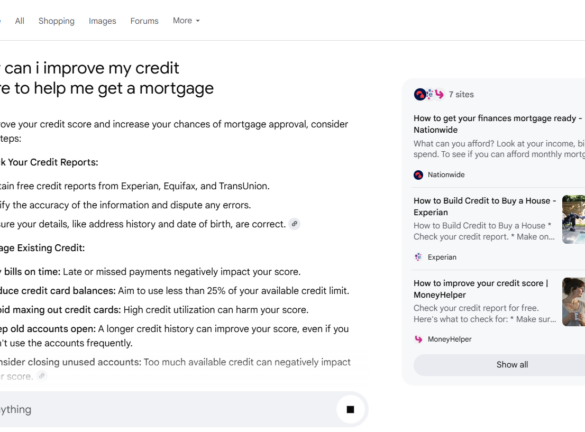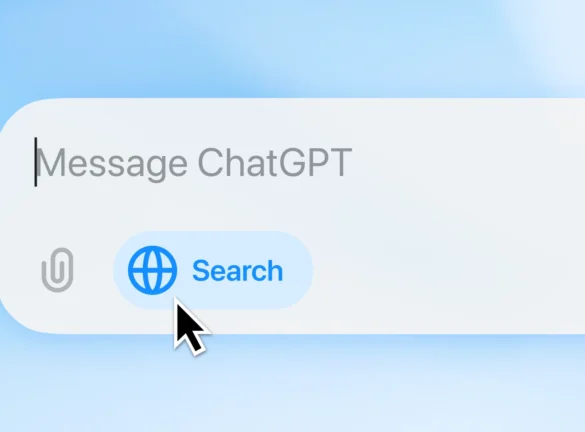
Key takeaways for SEOs from Google’s Next Billion Users report
Google recently published a new site called The Next Billion Users. Essentially, Google has been researching what is needed in terms of accessibility and inclusivity by the next billion people who will gain access to the internet. They are paying particular attention to “Novice internet users” (NIUs). These are individuals who are currently experiencing low digital confidence usually brought on by low digital literacy. They are often mobile-only or mobile-first internet users and represent approximately 2.5 billion of the 4.7 billion internet users globally.
As a result, NIUs have the power to shape the future of the internet and learning from their experiences will be critical to creating a better internet for everyone, everywhere. Novice Internet Users are more likely to be found in unsaturated, high-growth markets for smartphones and the internet. Google calls these Next Billion Users (NBU) countries, which include Bangladesh, Brazil, Egypt, India, Indonesia, Mexico, Nigeria, Pakistan, Philippines, Thailand and Vietnam.
Google has also published a list of 26 “areas of innovation” that they want to focus on to improve NIU’s experience of the internet. You can read more about the individual innovation areas here.
As Digital marketers it’s also really useful for us to see where and how Google will focus on making the internet more accessible for everyone, particularly in regards to content, search and privacy as this may inform Google Products or algorithm updates in the future.
As such, I’ve pulled out a number of takeaways from this report that may apply to SEOs and other digital marketers.
Mobile Users
In NBU markets, the internet is accessed through a phone. Google has been pushing mobile-first indexing and mobile-friendly sites for years, but for NIUs it is even more vital that content is easily accessible on a device.
According to a 2019 report by the WARC almost ¾ of all internet users will access the internet solely via their Smartphones by 2025. Similarly, Affordable smartphones such as the JioPhone Next and a wider availability of 4G broadband make it easier for NIUs to own and use a smartphone. NBU’s are also more likely to be using second-hand or damaged devices, as repairs may require too much investment. Google’s research found that a significant percentage of users had cracked or broken screens and would continue to use these devices even if they could cause an injury.
This means that we need to ensure our sites remain accessible for any size device and that our site layout and design work in both Portrait and landscape modes. Functionality such as forms or buttons also needs to be able to be manipulated in different viewports so users with damaged touch screens are able to move the touch target into an area of their device’s screen that they can access if the ordinary location does not work. Ensuring this functionality means that NIUs will always be able to access the content or functionality they need.
Language Barriers
Most phones default to English when they are first started up, and even if the NIU is able to switch the operating language (bearing in mind they may have no experience of navigating a phone, let alone changing core settings), they often discover that most internet content is also written in English. Google found that this frustration leads to a large number of NIUs stopping using the internet and not seeing the value it can offer.
To combat these challenges, some NIUs turned to voice tools as it allowed them to speak in their own language and hear results back in the same language. As such, ensuring that sites are optimised for these voice searches is vital to prolonging NIU engagement.
Google has obviously been working to make its services more widespread with new technologies such as MUM bridging the gap between foreign language content and what the user is searching for. We can support this by ensuring content can be translated and creating language variants wherever possible.
Site Design Features and Concepts
Imagine you’ve never used the internet before. Would you understand all of the buttons and icons used on a site? Would you know why you need an email account to access Facebook? Every day more than a million people will come online for the first time in their lives. Google has highlighted a number of common challenges NIUs may face when it comes to site design and other concepts the experience internet user takes for granted.
Icons and Functionality
The purpose of icons and buttons may not be immediately apparent to NIUs, compared to experienced internet users. For experienced users these symbols are so widespread we will almost always know what the below symbols mean and know what pressing them will do without having to actually do it.
![]()
Now imagine if you’d never seen any of these before and were using a website for the first time. Would you feel confident pressing them? This is compounded by a lack of confidence and anxiety many NIUs feel when faced with the internet for the first time. Many of the NIUs Google spoke to expressed fear of “breaking” something when navigating unfamiliar sites or using a new app for the first time.
“Phones are like weapons, with a single click you could lose everything”
The above quote, taken from the report, highlights the fear and anxiety NIUs are facing, without complicating matters by introducing abstract concepts like the above Icons. Those targeting NIUs or NMBs should bear in mind the challenges heavy icon usage can cause when designing or marketing their site and should provide contextual information or alternative methods of achieving this functionality where possible.
Accounts
I mentioned it earlier, but another challenging concept is that of Accounts. Google researchers were often asked what an account is and why a NIU might need one. Signing up for an online account can often be an arduous and worrying process for NIUs as they often involve personal and financial data or can have complicated T&Cs. Due to the anxiety mentioned above, NIUs can often be hesitant to create the necessary accounts to gain full access to online services and features.
We can help support NIUs in creating these accounts by signposting why a user needs to create an account, explaining why any personal information is needed and explaining any terms or conditions clearly.
Voice Search
NIUs face many issues when inputting text queries. Typing in Indic and scripted languages that many NBUs use can be extremely time-consuming and complex, making searches take much longer. Due to these difficulties or having to write in non-native languages (e.g. English), many NIUs are relying primarily on voice search instead.
Voice search is much simpler and allows NIUs to concentrate on other tasks, which means they don’t have to spend time typing. It also suits the question-based search terms NIUs often rely on. Google has been working to improve the availability and coverage of its voice tools (e.g. Gboard now supports voice typing in over 900 languages) but it’s important that sites targeting NBU countries optimise their content for voice search.
Visual Search
Related to the preference for Voice Search, Visual search is gaining popularity amongst NBU countries because it means they don’t have to rely on text queries. NIUs can easily take a photo of the object they want to search for and receive the required information or webpage.
Companies can optimise for this type of search by offering hi-res images with correct alt text and descriptions, making the images more likely to rank in Google.
Video Content
Video-based content is becoming more popular in NBU countries, as many NIUs prefer a visual search experience, as opposed to text-based due to the language barriers previously mentioned. Video content can often be more engaging and digestible for NIUs and has features that can support their query such as time stamps and sections so the user can jump to the relevant part of the video.
Organisations wishing to target NBU countries may benefit from creating more video-based content, as well as ensuring existing videos are properly marked up and timestamped to improve search performance and appearance.
Conclusion
NBU countries can offer great opportunities for companies able to optimise and target these new markets, but it is vital to remember the unique challenges and requirements facing these NIUs. Google is working to improve NIU’s experience of the web but we need to support and engage with these users too in order to create a more inclusive and helpful web for everyone.
Are you looking for more SEO insights? Get in touch here to find out how ROAST can help you.





